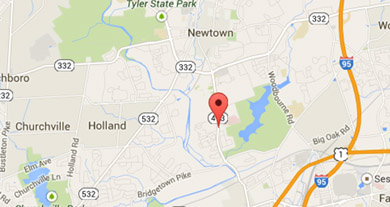Contact an experienced Juvenile Crimes Lawyer to receive a professional consulation about juveniele crimes now.
Whenever an individual who hasn't reached the age of majority breaks the law, this is considered to be a juvenile crime. The results of a juvenile committing a crime can end up landing them in juvenile detention hall (JDH), a correctional camp run by the government, or and a detention facility geared towards adults dependent upon the severity of the crime. If the crime isn't that severe, it's not uncommon for them to be turned over to their parents or guardian.
Laws in the United States regarding crimes committed by juveniles requires that they be given a "notice to appear". There are many ways that this child can be provided with this notice, from giving it to them when they are released from detention, or it can be sent to them through the mail. This notice is going to contain all of the pertinent information regarding the crime, and will also include the location where they need to report along with the date and time. The majority of states are going to have laws regarding the timeframe in which these notices must be served. The timeframe typically has to do with whether or not the juvenile is still in custody or has been released to the custody of their parents. For those juveniles who are in custody, typically they have to be served five days before they need to appear, and for those who have been released to their parents custody, 10 days is usually required.
Juvenile crimes are typically going to be handled pretty much the same wherever you are in America, but there will be some minor differences depending on where you're at. If the cases aren't too severe, it's not uncommon for a juvenile to be turned over to the juvenile probation department, who will determine the punishment depending on what the crime was. Most often this is going to entail paying a fine, but it can also include such things as anger management courses, and community service in order to cover restitution. Most commonly, after the juvenile has paid off all of the restitution for the crime, they'll no longer have to check in with the probation department.
If the juvenile has committed a crime that is a lot more serious in nature, then it's likely that they will have to show up for a court date. This initial hearing is simply a process where the juvenile offers either a guilty or not guilty plea before the judge, who will then make a determination on whether the case goes to trial. In the event that the juvenile pleads not guilty to the charges, a trial date will be set, and they will be given instructions to retain a defense attorney. If they are not able to afford one, at least within the United States, a public defender will be made available to them. This could be different for countries outside of the United States.
Many times the court will just opt to place a juvenile on probation, but this is all going to depend on whether or not the juvenile has a previous criminal history, and how willing they are to cooperate with the probation department and the court system. There are a couple of different varieties of probation depending on where you live, and these are normally informal, and formal. Typically when an individual is placed on the informal probation, they will have to complete community service, and pay all of their fines, but there aren't necessarily going to have to keep in contact with the probation officer. In contrast, a formal probation is going to require that the juvenile stays in contact, and reports consistently to their probation officer.
If the juvenile is to commit a truly heinous felony, there are some instances where they will be charged as an adult rather than as a juvenile due to the seriousness of the offense, regardless of whether or not they have reached the age of majority at the time of the crime. Some of these truly heinous offenses would include the molestation of a child, premeditated murder, and rape, but there are also others that could be added to this list. The age in which the juvenile is able to be tried as an adult is going to vary depending on where the crime was committed and the jurisdiction that they fall under.




